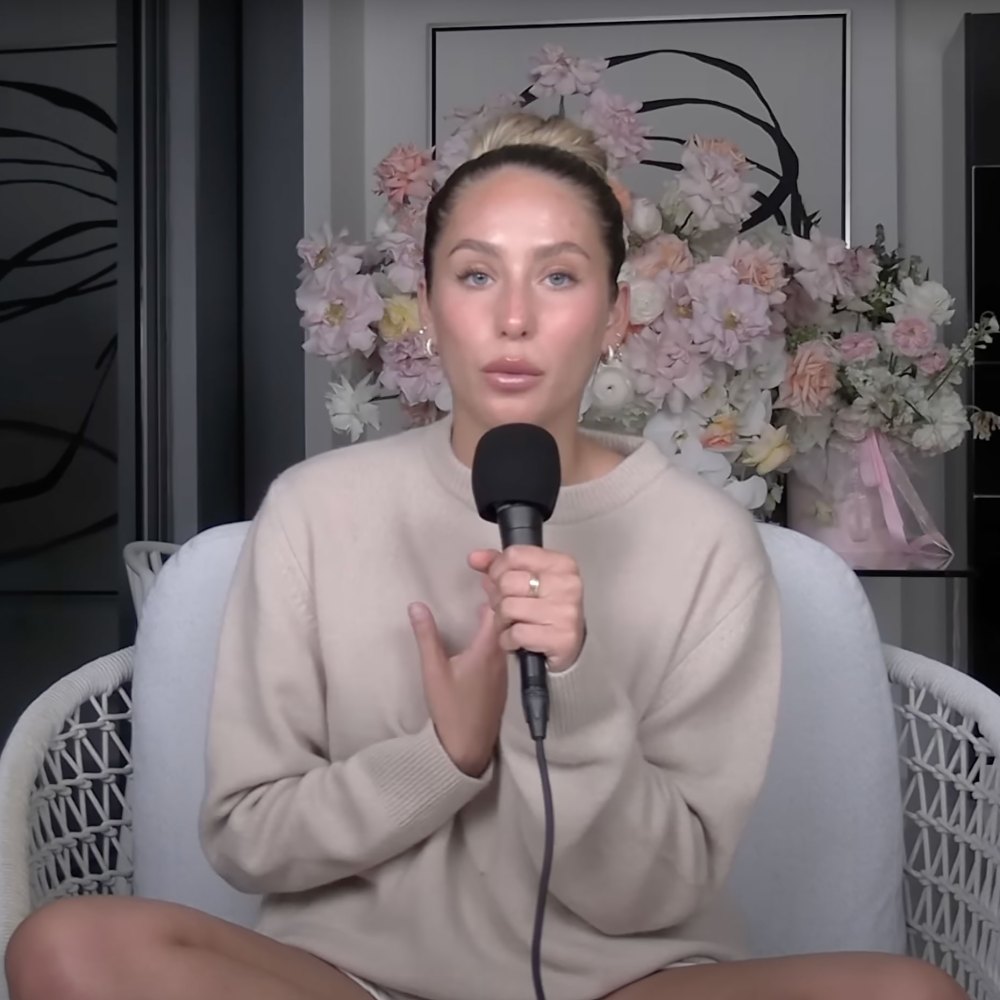Alix Earle is getting vulnerable about her past struggle with an eating disorder.
The TikTok star, 22, shared her experience on the Thursday, October 5, episode of her podcast, “Hot Mess with Alix Earle.”
“This is something very personal and I haven’t really talked about online before,” she began, before adding a trigger warning for those who may be sensitive to the topic of eating disorders.
Earle went on to say that her eating disorder began in high school.
“I had never thought that women need to diet, women need to eat healthy,” she said. “I just kind of thought it was ‘eat what you want’, ‘eat what you love.’ My family was super good about that.”

Alix Earle Hot Mess with Alix Earle/YouTube
Earle explained that during her sophomore year of high school, she noticed that her friends were going on “extreme diets” and felt pressured to do the same.
“They were paying thousands of dollars for these diets,” she said. “And in my mind, I knew that this wasn’t normal at first but after watching their habits and watching them lose weight and watching them be so satisfied over this, it became more normalized for me. It was a very, very toxic environment when it came to girls’ relationship with food. I went from someone who had a very healthy relationship with food very quickly to someone who did not.”
Earle said she became obsessive about food and began reducing her portion sizes, which only led to her feeling hungry constantly. As a result, she says, she developed binge eating disorder and later, bulimia.
“All I wanted to do was get those thoughts out of my head that were making me feel so guilty about the food that I just ate,” she said of her experience with binging and purging, calling it “a toxic cycle.”
The social media star also recalled struggling with body dysmorphia. “I would look in the mirror and I would see someone way bigger than the person that I was, and I couldn’t grasp why I was never happy with the image that I saw,” she said.

Alix Earle Taylor Hill/Getty Images
Eventually, Earle realized she needed to make a change. “I thought, OK well maybe if I can’t say this out loud, maybe I shouldn’t be doing this,’” she said. “So I knew I needed to stop, and I did. I stopped making myself throw up.”
Though she stopped purging, Earle said she was still restricting food when she entered the University of Miami. There, she recalls, her friends stepped in after noticing her dangerous eating habits.
“They were like, ‘Alix, you know that’s not healthy, that’s not OK,’” she said. “‘That’s not normal for you to think that or do that or restrict yourself from those foods, like that’s not healthy.’ And I was just so appreciative at the fact that I had girls telling me that, like, it was OK to eat, and we weren’t all going to be competing with our bodies.”
Earle says her friends helped pull her out of her toxic mindset when it came to food, and now, she is in a much better place.
Thank You!
You have successfully subscribed.
“I’m able to be at this great place now with food where I don’t really think about this at all,” she said. “I eat what I want to eat, and that has me in such a better place and in such better shape. And my body is so much healthier than it ever was.”
She continued, “I really hope that this can help at least one person who’s struggling with this or who has struggled with this, and just know that it can get better.”
If you or someone you know struggles with an eating disorder, visit the National Association of Anorexia Nervosa & Associated Disorders (ANAD) website or call their hotline at (888)-375-7767 to get help.

